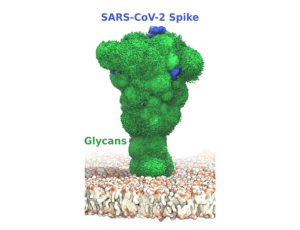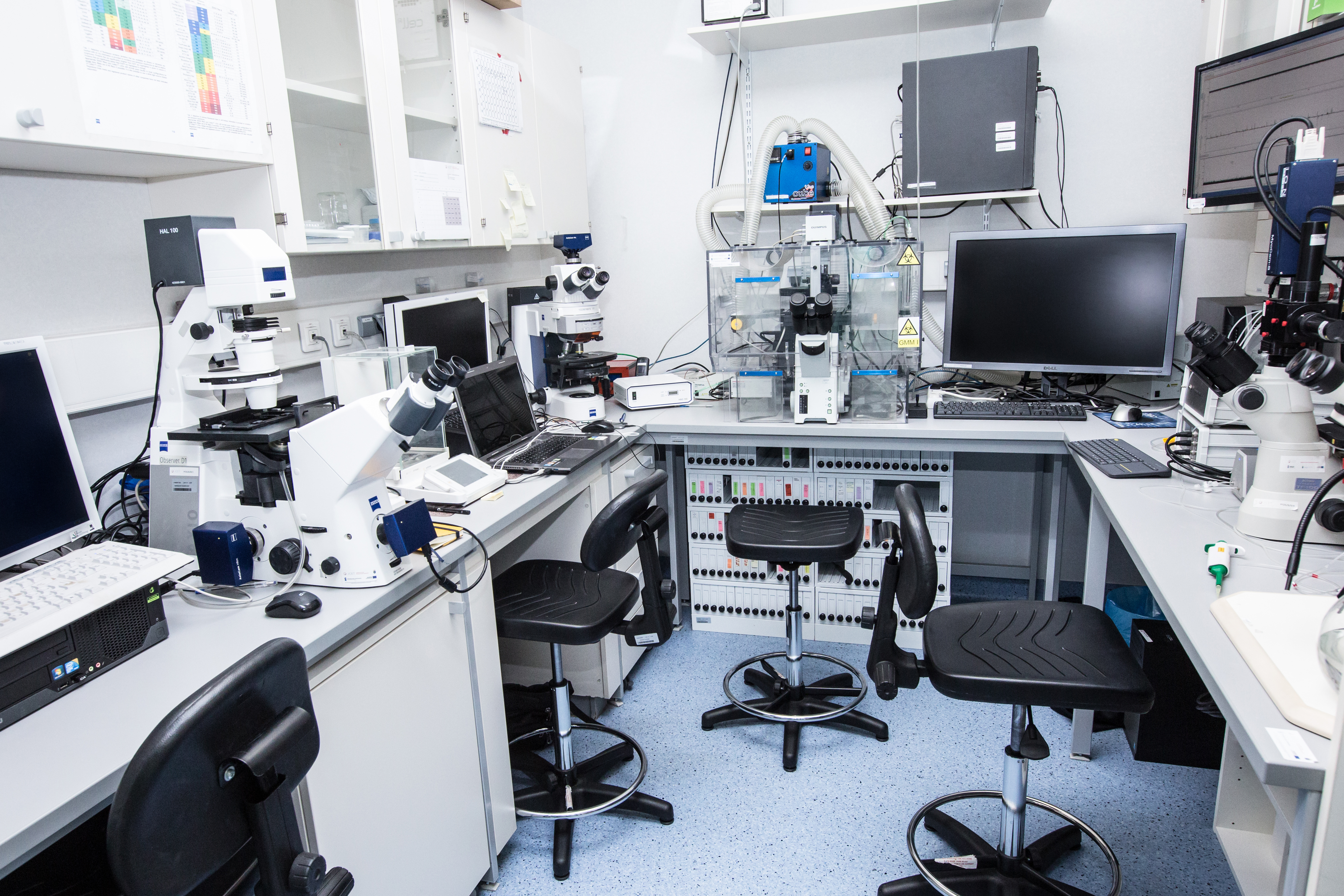
Project description:
During biosynthesis, membrane and secreted proteins are modified by covalent addition of complex sugars – glycans. Glycans typically do not interact strongly with the surface of the protein they are attached to and remain very mobile, shielding the protein surface from direct contact with other proteins and ligands. As became evident for the protein mediating SARS-CoV-2 entry into host cells, glycan shields hinder immune responses and are a key contributor to the success of coronaviruses. The majority of protein-protein interactions are affected by glycan shielding, which is further fine-tuned by cell type-dependent variations of glycan composition. Despite their general importance, glycan shields have so far been characterized for only very few proteins and we know surprisingly little about their structural and functional impact.
Within this project, you will work at the interface between computational biology, biophysics and glycomics to establish the core principles of glycan shielding in collaboration with experts in experimental and computational biology. By combining physics-based high-performance computer simulations, structure prediction tools and glycoproteomics datasets, you will:
- Characterize the molecular mechanisms of the shielding
- Explore the impact of glycan heterogeneity on protein shielding, with a particular focus on atypical glycans present in cancer, important factors in cancer immunotherapy.
- Contribute to expanding our open-access glycan shielding database GlycoSHIELD
The perfect Candidate should have:
- MSc or equivalent degree in physics, chemistry, biophysics, computer science or similar
- Interest in physics of biological systems
- Previous experience in programming/scripting (Python, bash, etc.), biomolecular simulations engines (GROMACS, NAMD, Charmm) are not required but are a plus.
- Excellent communication skills and strong working proficiency in English.
Detailed recruitment conditions and procedures - tailored to Biomedical Sciences education programme in accordance with the Resolution No 61/X/2022 of the Senate of the Jagiellonian University of October, for academic year 2023/2024.
Application documents required for the Biomedical Sciences education programme, academic year 2023/2024.
Please upload your application documents in the electronic IRK system (irk.uj.edu.pl)
Documents required for admission to the Biomedical Sciences education programme, academic year 2023/2024
Schedule of the competition:
- Opening of the competition: 04.09.2023
- Application submission deadline: 07.09.2023
- Entrance exams: 19-20.09.2023
- Committee meeting - no later than: 20.09.2023
- Exam results: 22.09.2023
- Entries to the Doctoral School: 25-26.09.2023
- Entries to the Doctoral School - reserve list: 27.09.2023
The environment:
You will join the Dioscuri Centre for Modelling of Post-translational Modifications led by Mateusz (Matt) Sikora. Dr Sikora is an expert in computer simulations of biological systems with particular focus on glycosylation and other modifications of proteins. The Malopolska Centre of Biotechnology is a world-renowned research institute offering a supportive and interdisciplinary research environment at the international level. We offer very good financial conditions and a cooperative working environment with access to cutting-edge computing facilities. By joining the Centre, you will have an opportunity to be involved in joint scientific and networking activities together with the Theoretical Biophysics dept. at the Max Planck Institute of Biophysics in Frankfurt, Germany, led by prof. Gerhard Hummer, partner of the Centre.
The Malopolska Centre of Biotechnology and the Dioscuri Centre strive to ensure a workplace with equal opportunities. We celebrate diversity and are committed to creating an inclusive environment for all members irrespective of gender, nationality or disabilities.
Accommodation:
It is possible to apply for a place in the Doctoral House. Receipt of a place is determined by the availability of vacant places and the fulfilment of the conditions described on the Doctoral Student Society website.
IMPORTANT:
A person admitted to a doctoral school commences education and acquires the rights of a doctoral student upon taking the oath. The taking of the oath is done by personally signing the oath in the office of the Education Programme.
Health Insurance – important changes
As of 1.10, the rules for the registration of doctoral students for health insurance by the University are being changed. After this date:
- Citizens of Poland, European Union [EU], European Free Trade Association [EFTA] and holders of the Pole's Card, up to the age of 26 should be insured as members of their families, if these have insurance in the EU/EFTA. The insurance is confirmed by a valid EHIC (European Health Insurance Card) card issued in the country of insurance application. Once they have reached the age of 26, they will apply for health insurance coverage at the Jagiellonian University.
- Other doctoral students (from outside the EU, EFTA) have to pay for their own voluntary health insurance at the Social Security Health institution [ZUS] (on the basis of a contract concluded with the Polish National Health Fund [NFZ] facility) or take out a commercial insurance with a guarantee amount of no less than EUR 30000. They may have both of these insurances. It is insufficient to have only medical packages (subscriptions) in private facilities, as these do not cover the costs of possible hospitalisation. We recommend that each candidate, in particular a foreign candidate, takes out insurance for the duration of the journey and a minimum of the first month of stay in Poland (until the formalities have been completed upon arrival).



